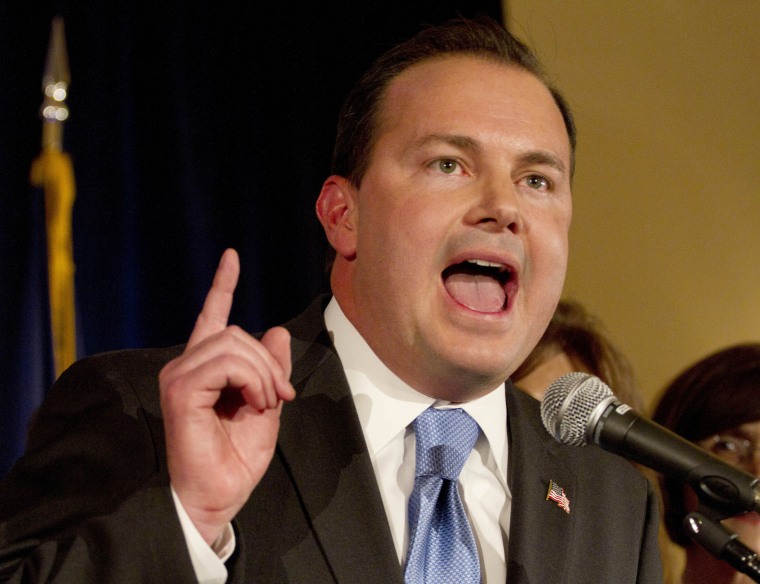When the Affordable Care Act's open-enrollment period got off to a rough start last October, it was easy to note the similarities between its difficulties and those associated with the Bush/Cheney Medicare Part D policy. On Friday, Sam Stein had a terrific report noting just how deep the parallels go.
But there's one important area where there similarities end.
Stein's report is quite comprehensive, and serves as a powerful reminder that major policy overhauls often take a little time to find their footing. Both the ACA and Plan D struggled during the rollout; both suffered technical glitches; both shrunk networks to the surprise of consumers; both struggled with overwhelmed call centers; both suffered in the polls.
But there was one angle in particular that Stein flagged that I'd forgotten about: when Plan D implementation struggled, the Bush/Cheney administration unilaterally extended deadlines and waived penalties -- relying on nothing but executive discretion and regulatory authority.
Why is this important? In general, it's not, except now that the Obama administration is taking similar steps, Republicans are characterizing it as the end of our constitutional system of government.
President Obama is creating a "government of one" by ignoring the Constitution and further delaying ObamaCare's employer mandate, according to Sen. Mike Lee (R-Utah). The Republican senator said on "Fox News Sunday" that the president seemed to be flouting the law in order to improve Democrats' chances in the 2014 midterm elections. "The president knows this is wrong and it's not defensible," Lee said.
The far-right senator added, as if he were entirely serious, that the president is "violating the Constitution," is "exercising power that doesn't belong to him," and is engaged in "a shameless power grab."
As a matter of substance, it's awfully difficult to take Lee's apoplexy seriously. Indeed, part of me doubts the senator actually believes his own rhetoric -- if Lee genuinely believed Obama's "violating the Constitution," he'd do more than complain about it on a Sunday show.
But it ties into a larger pattern of Republicans embracing something we can call the "Obama standard."
Remember, Stein's report is quite informative -- when Bush struggled with Part D implementation, he used executive-branch powers to tweak implementation. Obama is taking the same steps now. The difference is, when Bush did it, no one in Congress, in either party, ran around whining about the president creating a "government of one." It just didn't seem that important -- because it wasn't.
There's nothing wrong with holding leaders to a high standard -- as a rule, I'd encourage it. But there is something wrong with holding one leader to a new standard -- an "Obama standard" -- that doesn't apply to anyone else.
When other presidents issue executive orders, it's fine. When Obama does it, Republicans insist it's scandalous.
When other presidents rely on "czars," it's fine. When Obama does it, Republicans insist it's scandalous.
When other presidents make recess appointments, it's fine. When Obama does it, Republicans insist it's scandalous.
When other presidents decide not to defend certain federal laws against court challenges, it's fine. When Obama does it, Republicans insist it's scandalous.
Other presidents have bowed when meeting foreign heads of state. They've tried terrorist suspects in federal courts. They were photographed wearing casual attire in the Oval Office. But when this president has done the exact same things, his detractors have turned the meaningless incidents into controversies.
And now we have the latest example -- when Bush used his powers to improve implementation of a federal health care policy, no one raised a fuss, but now that Obama's done the same thing, congressional Republicans are convinced he's a lawless radical violating the Constitution.
If there was even one example of congressional Republicans balking at Bush taking these actions, their criticism might have some merit. But until they produce such an example, it's pretty silly.
